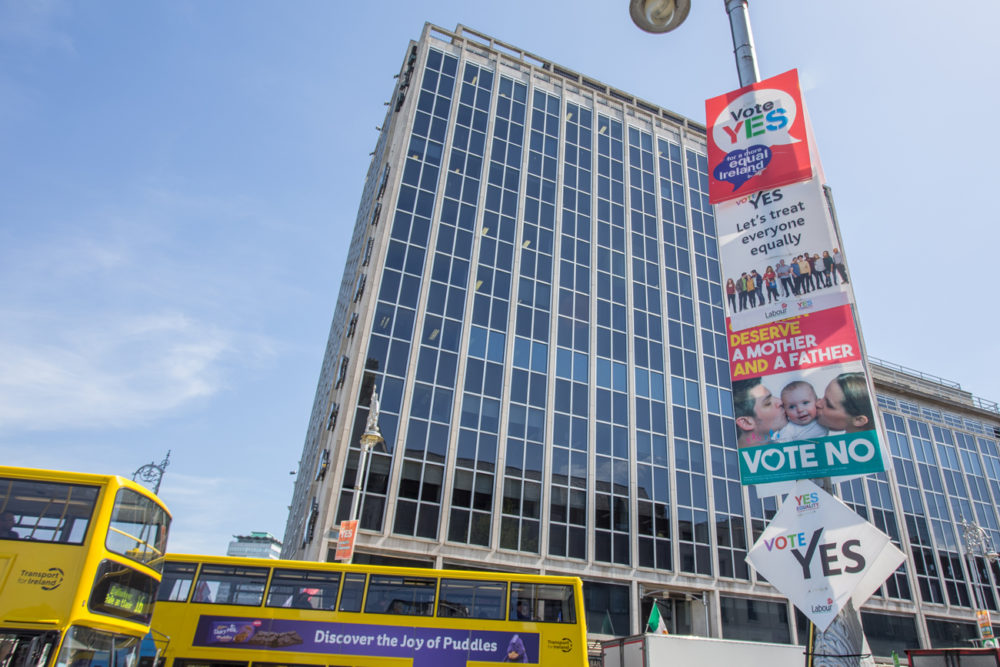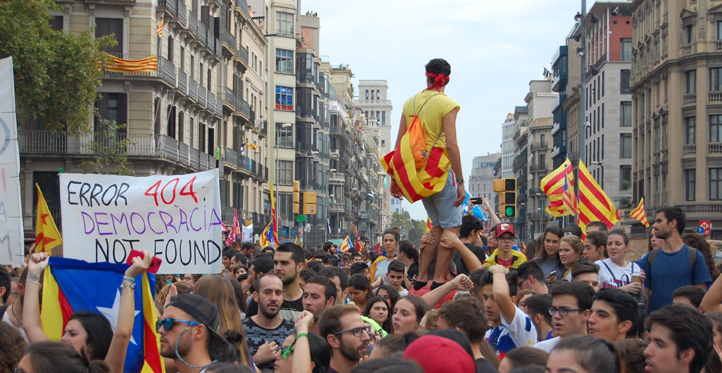 Menu
Menu
 Menu
Menu
Democracy is a radical departure from when leaders ruled by decree. The vote gives citizens the power to keep the elite in check.
In a democracy, the people rule. This is the meaning of the word democracy. In Greek, demos means people and kratos means rule.
How people use their democratic power differs from place to place. In Canada, we elect people to government. These elected representatives make decisions on our behalf. This is called representative democracy.
Democratic power can also be used in a more direct way than simply voting for a representative. People may be asked to vote on a specific policy. When citizens—not elected representatives—decide specific issues, it is called direct democracy.
Some countries are governed by direct democracy. For example, the tiny European nation of Liechtenstein presents its proposed laws to the people for a vote. Because Liechtenstein’s citizens directly decide what becomes the law, the country is a direct democracy.
Canada sometimes uses direct democracy. For example, in 1992 Canada held a national vote on amending the constitution. In 1991, Saskatchewan held votes on public funding of abortions, balanced budgets, and methods of approving constitutional changes. And countless municipalities in Saskatchewan have allowed their citizens to vote on local issues. For example, in 2013 the City of Regina asked citizens who should build their new waste water plant.
The idea of direct democracy—people directly voting on issues—goes back at least 2,500 years, to ancient Greece.

Campaign posters for Ireland’s 2015 referendum on marriage equality. Ireland became the first country to legalise same-sex marriage through a popular vote.
Athens was ancient Greece’s largest polis, or city-state. At its peak in 5th century BC, Athens was home to about 250,000 people and covered 2,500 square kilometres. Like many ancient Greek city-states, Athens was a direct democracy.
In Athens, assemblies were held to vote on laws and public policies. As well, about 1,200 public officials were chosen every year, either by a vote or by a lottery.
Assemblies in Athens were open to male citizens. In general people were citizens if they completed military service, were born to citizen-parents, or had citizenship conferred upon them by the assembly. Women and children could hold citizenship, but were not allowed to vote.
Assemblies usually took place at the Pnyx, a central hill in Athens. However, if more than 6,000 people were meeting they would assemble in the agora, the central marketplace. Attendance was usually optional. Those who attended were compensated for their time.
At an assembly, laws and policies were put forth for citizens to consider. Proposals for laws could be made by any citizen beforehand. Public officials determined which proposals would be considered by the assembly. Most often, radical proposals for change would not be considered.
Anybody could speak at an assembly. Nevertheless, it was usually ambitious men who spoke. The vast majority merely listened and voted. After all, speaking out was risky: speakers could potentially be held legally responsible for giving bad or false advice. On the flip side, citizens were never held responsible if they irresponsibly cast votes
Though an ancient Greek tradition, direct democracy is still used in Saskatchewan today. In fact, referendums are very common at the municipal level of government, whose governments may call a plebiscite or referendum on a local issue. A simple majority of votes cast is all that is needed for a local referendum to pass.
The provincial government may also call a plebiscite or referendum. If the provincial government calls a referendum, two thresholds must be met for the result to be binding:
These two requirements help ensure that a referendum only passes if there is a clear majority of people in favour.
Saskatchewan’s citizens also have powers to bring issues to the ballot box. At the municipal level, citizens can force their local government to hold a referendum if they circulate a petition and collect enough signatures. In cities, the signatures of voters representing at least 10% of the population are required. In all other municipalities, the signatures of 25 voters or voters representing at least 15% of the population must be collected, whichever is greater.
Saskatchewan is one of the few provinces that also gives its voters the power to create a province-wide plebiscite.
Citizen-initiated municipal referendums must demand something within the jurisdiction of the municipality, and cannot commit the municipality to create new taxes or spend money.
Interestingly, Saskatchewan is one of the few provinces that also gives its voters the power to create a province-wide plebiscite. Citizens first must circulate a petition that spells out the proposed plebiscite question. If the question falls within the province’s jurisdiction, and at least 15% of voters sign the petition, the government must hold a vote.
Even though Saskatchewan citizens have had the right to initiate provincial plebiscites since 1991, to date there has yet to be a provincial, citizen-initiated plebiscite.

Protests in Spain followed the government’s refusal to recognise the legitimacy of Catalonia’s 2017 independence referendum.
Plebiscites and referendums both give people the opportunity to directly vote on an issue. However, they are not the same.
A plebiscite is not legally binding. The government is only required to consider the results of the vote.
A referendum is legally binding. The government must do what the people decide.
Even though plebiscites are not binding, they can be very useful. Plebiscites measure the public mood, and provide advice on how a government should proceed. Any government that does not follow the will of the people must carefully explain their reasoning, or risk being thrown out of office in the next election.
However, critics point out that because the government does not have to act on the results, plebiscites are technically not a form of direct democracy. Political scientist Don Rowat has instead called plebiscites “merely a kind of expensive public opinion poll.”